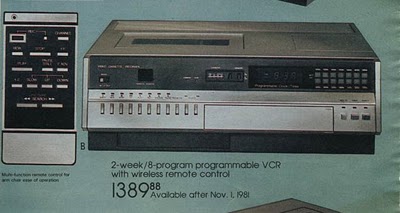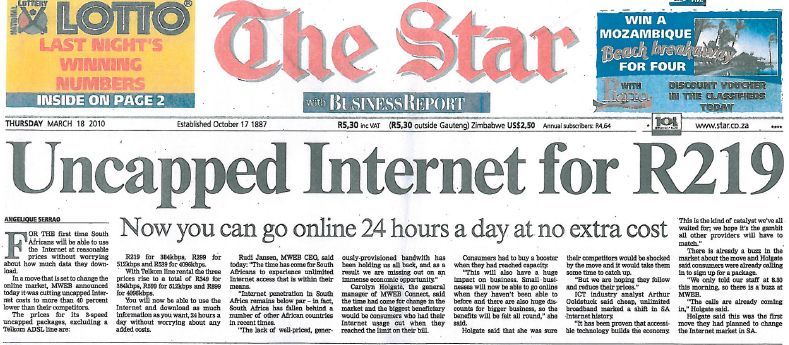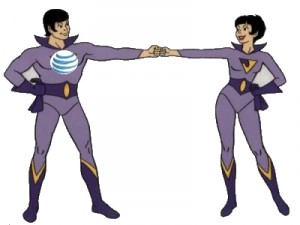 In a stretch even the most accomplished Yoga master would never attempt, an industry-funded dollar-a-holler group has told Congress that Internet Overcharging is a useful tool to combat online piracy.
In a stretch even the most accomplished Yoga master would never attempt, an industry-funded dollar-a-holler group has told Congress that Internet Overcharging is a useful tool to combat online piracy.
On Tuesday, Daniel Castro, an analyst at the Information Technology and Innovation Foundation (ITIF), testified before the House Judiciary Committee on the issue of combating “rogue sites [that] operate in a low risk, high reward environment.”
In December 2009, ITIF proposed a number of policies to help reduce online copyright infringement, especially in countries that turn a blind eye to copyright enforcement. The purpose of these policies is to establish a robust enforcement mechanism to combat IP theft online. These recommendations include the following:
- Create a process by which the federal government, with the help of third parties, can identify websites around the world that are systemically engaged in piracy;
- Enlist ISPs to combat piracy by blocking websites that offer pirated content, allowing pricing structures and usage caps that discourage online piracy, and implementing notice and response systems;
- Enlist search engines to combat piracy by removing websites that link to infringing content from their search results;
- Require ad networks and financial service providers to stop doing business with websites providing access to pirated content;
- Create a process so that the private sector can consult with government regulators on proposed uses of anti-piracy technology;
- Fund anti-piracy technology research, such as content identification technology;
- Pursue international frameworks to protect intellectual property and impose significant pressure and penalties on countries that flout copyright law.
 Castro’s idea of allowing providers to establish “pricing structures and usage caps” stands out like a sore thumb in the context of battling piracy because it is the only recommendation on the list that targets every broadband user with the same broad brush, punishing every customer whether they are engaged in piracy or not.
Castro’s idea of allowing providers to establish “pricing structures and usage caps” stands out like a sore thumb in the context of battling piracy because it is the only recommendation on the list that targets every broadband user with the same broad brush, punishing every customer whether they are engaged in piracy or not.
It would be like setting up roadblocks and searching every vehicle in a city to search for a shoplifter. Every individual is found guilty before being proved innocent, and will be forced to pay higher prices regardless of the outcome.
The ITIF proposal runs contrary to years of efforts by Internet Service Providers to avoid being involved in the personal business of their customers. In 2009, major ISPs wanted no part of enforcing a proposal from the record industry for a “three strikes, you’re out” plan. Verizon, among others, made clear copyright enforcement was not their responsibility to police, although many ISPs are willing to forward copyright infringement notices to individual customers.
Castro’s testimony goes over the top when he blames his own suggested pricing antidote for “hurting law-abiding consumers who must […] pay higher prices for Internet access to compensate for the costs of piracy.”
Of course, no ISP has ever suggested they would use the extra revenue earned from Internet Overcharging to combat another industry’s piracy problem.
His sweeping indictment against consumers extends beyond nipping at their bank accounts on behalf of telecommunications companies who help fund the group he represents. He also suggests those who oppose his piracy prescriptions are either in league with, or defenders of piracy — or other offenders ranging from criminal enterprises to kiddie porn peddlers.
Castro’s support for usage caps to control illicit online activities leaves collateral damage as far as the eye can see. It also simply won’t work for many forms of piracy Castro complains about. ISPs with usage caps go out of their way to note even the most draconian limits still allow thousands (if not hundreds of thousands) of songs to be downloaded — legal or otherwise. Castro testified e-published books are now increasingly vulnerable to piracy, content compact and easy to obtain even with usage limits. Combating websites dealing in counterfeit goods with usage limits isn’t even worth trying.
What Castro’s proposal will do is limit access to the growing amount of legitimate online video traffic. While the author cites statistics that “one in four bits of traffic traveling on the Internet today is infringing content,” (taken from a report commissioned by NBC-Universal, who has a major interest in this battle) he ignores other facts. Namely, more than three-quarters of all broadband traffic is legal and legitimate. Nearly 20 percent of primetime broadband traffic is coming from companies like Netflix who are in the business of providing a legal alternative to video piracy.
Castro’s argument on usage caps simply falls apart: ISPs, who have never been particularly interested in being the enforcement divisions for Hollywood studios, should be given the right to limit broadband usage and raise prices to combat piracy even when most of that traffic heads for legitimate websites?

Public Enemy #1 for Content Theft circa 1981: The $1,400 VCR
Online piracy enforcement should not involve Internet Overcharging schemes, and arguments that it should only illustrate why so many consumers and public interest groups get nervous about industry-proposed enforcement mechanisms. Too often, they ignore presumption of innocence before guilt, browbeat alleged offenders into settlements to avoid costly litigation — guilty or not, and turn over policing to an industry with a long track record of overreach to protect their business interests. The record speaks for itself:
- Demands to ban videotape recorders in the 1970s and early 1980s for “piracy reasons”;
- Tax cassettes and video tapes to cover alleged piracy losses in the 1980s;
- Tax blank digital media in the 1990s because of “rampant piracy”;
- Impose monthly “piracy recovery surcharges” on broadband users in the 2000s;
Now the industry wants to police the piracy problem on its own terms. As before, the proposed solutions are worse than the problem.
Back to the future. In 1981, ABC’s Nightline ran this report on the entertainment industry suing a VCR owner, retailers, and manufacturers for piracy over taping a television station with a videocassette recorder. The concern in 1981 — technology was moving faster than copyright law could keep up. Many of the yesterday’s players are part of today’s debate, including Universal, the company that purchased research indicting 20 percent of all Internet traffic as “illegal.” (Part 1 of 3 – 9 minutes – Courtesy WEWS-TV Cleveland, ABC News, and ‘videoholic1980s’)
Today’s piracy debate rehashes the same accusations of content theft, only the technology has changed. One executive tells the Nightline audience he’s offended at being told the industry already earns enough. The movie and television industry predicted calamity over the VCR more than 30 years ago, saying it would cost them billions in lost profits. Hollywood eventually lost the argument against the VCR and their businesses turned out fine, earning billions in revenue selling videotapes of movies and television shows to consumers they were willing to sue just a few years earlier. (Part 2 of 3 – 9 minutes)
Before Washington is asked to join the panic-frenzy over online piracy, perhaps they should recall the same predictions of doom and gloom made by many of the same companies — predictions that were overstated. Imagine if they had succeeded in banning the VCR? Indeed, just as before, Hollywood stands to earn billions online when they make their content available for easy, legal viewing at a reasonable price. Slapping usage limits on broadband consumers is the worst idea ever to promote legal viewing of digital content because it discourages customers from shopping for it. (Part 3 of 3 – 4 minutes)


 Subscribe
Subscribe









